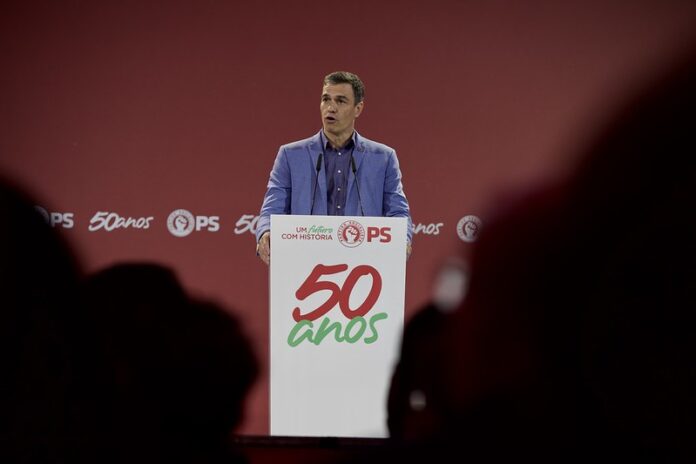Acting Prime Minister Pedro Sánchez has boosted his chances of forming another minority leftist coalition government in Spain thanks to a political deal reached between his Socialist Party and a fringe Catalan separatist party.
Socialist party official Santos Cerdán announced the deal on Thursday in Brussels on the strength of an agreement reached with the party led by Carles Puigdemont, who fled to Belgium, after Catalonia’s failed independence attempt in 2017. It revolves around an amnesty for potentially thousands of people involved in the region’s controversial 2017 secession bid.
“This a political agreement and an agreement for an amnesty,” Cerdán said.
Spain’s leader since 2018, Sánchez will also require the support of a small Basque party, something he is likely to achieve.
Agreeing to the amnesty was key for those negotiating on behalf of Sánchez’s caretaker leftist government in order to win the support of two Catalan pro-independence parties. The backing of Puigdemont’s Junts (Together) and the rival Republican Left of Catalonia party, which aligned behind Sánchez last week, is essential if he is to be re-elected prime minister following July’s inconclusive national election.
Holding just seven seats apiece in the 350-member parliament, together, the two radical parties can pull Sánchez over the 176-vote threshold he needs to cross at the pending investiture session. If a government cannot be formed by November 27, parliament would be dissolved, requiring a new election in January.
The amnesty deal would benefit Puigdemont and scores of people, ranging from minor government officials to ordinary citizens, who got into legal difficulties because of the roles they played in Catalonia’s illegal secession attempt six years ago.
Puigdemont fled to Belgium in 2017 to avoid arrest, and Spain’s courts have been trying to have him extradited more or less since. Many Spaniards consider him an enemy of the state, and a deal that benefits him politically toxic.
A separate statement by Puigdemont briefly mentions the amnesty but says nothing about his own legal future. In it he stresses that the agreement represents a big victory for his cause.
“We have not accepted that we have committed any crime, we have not had to ask for forgiveness,” he declared. Moreover, he noted, that Madrid has accepted that an “international” observer should be named later to ensure that both sides live up to their part of the bargain.
In order to pass, the amnesty legislation will need the support of several smaller left-wing and regionalist parties. According to Cerdán, it will cover all crimes and alleged crimes related to the Catalan separatist movement from 2012 until now.
Spain’s main conservative opposition Popular Party and the far-right Vox party plus many in the judiciary are fiercely opposed to the amnesty. In recent weeks, tens of thousands of people have rallied in Madrid and Barcelona against it.
The amnesty talks have also come under EU scrutiny, with Justice Commissioner Didier Reynders asking Madrid for more information. The issue is likely to end up in Spain’s Constitutional Court for a judicial review.
Despite the loss of support for Catalan separatism in the July election, Junts and Republican Left for Catalonia were able to use their leverage in a fragmented parliament to make an amnesty law a prerequisite for their support of Sánchez. However, to date, Sánchez has ruled out their demand for an independence referendum in the region.
While Puigdemont considers himself a political exile, the Spanish government and many Spaniards insist he is a politician who violated the law, then held an independence referendum in October 2017 before issuing a declaration of independence that won no international recognition. He subsequently slipped across the border to avoid a legal crackdown that resulted in several of his Cabinet members ending up in prison.

